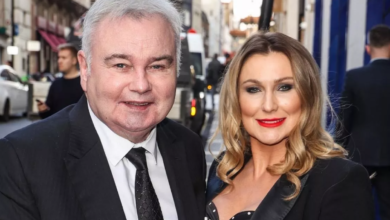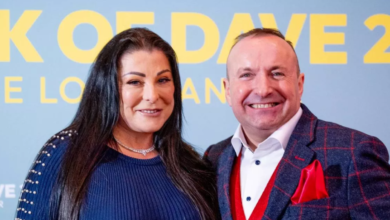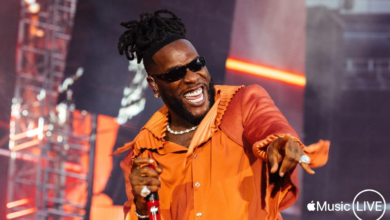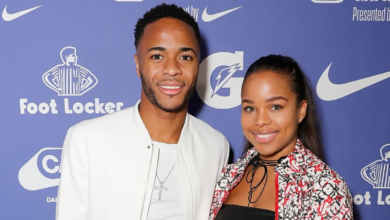Liz Carr: A Bold Voice Redefining Disability and Diversity
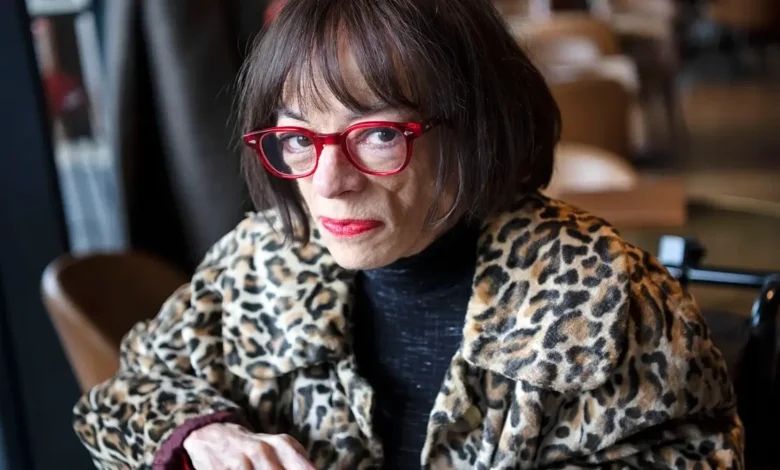
Liz Carr is a name that sparks inspiration, resilience, and bold activism in the world of entertainment and human rights. She’s not just a British actress—you could easily call her a powerhouse for change. Best known for her role in the BBC drama Silent Witness, it has carved a place in the industry that’s uniquely hers. She’s witty, unapologetically honest, and doesn’t shy away from turning her own life into a platform for advocacy.
Before she became a familiar face on British television, she had already made waves as a comedian, activist, and disability rights campaigner. Diagnosed with arthrogryposis multiplex congenita, she’s been a wheelchair user since the age of seven. And she’s been challenging stereotypes and breaking down barriers ever since.
But what truly sets it apart is her ability to balance humor and hard truths. She’s outspoken, clever, and uses her public platform to speak up on issues that often get overlooked. Whether it’s accessibility in media, assisted dying laws, or the lack of disabled representation in mainstream film, she doesn’t just join the conversation—she starts it.
Early Life and Background
Liz Carr was born in Wirral, Cheshire, England, and her childhood was full of unique challenges that shaped her into the woman she is today. Living with a rare genetic condition meant navigating the world in a wheelchair, but that never slowed her spirit. From a young age, she was always vocal, curious, and brave enough to ask difficult questions.
Her upbringing was supportive but not sheltered. Her parents encouraged her to be independent and to challenge limitations, something that would become a core part of her identity. Education played a significant role in this development, and she went on to study law at the University of Nottingham. Even then, she had a deep-rooted passion for social justice and inclusion.
That legal background might surprise some fans who only know her from her acting work. But it’s actually part of what makes it such a persuasive activist. Her understanding of the legal system has been invaluable in her campaigns for disability rights, healthcare access, and legal reform.
Liz Carr’s Rise to Stardom

she didn’t follow the traditional route into showbiz. Her rise in the entertainment world was gradual, organic, and entirely self-made. She first gained attention on the comedy circuit, where her razor-sharp wit and unapologetic humor stood out in a sea of sameness. she made comedy work for her—and more importantly, she made space for herself in a field that rarely prioritized disabled voices.
She co-hosted the BBC’s Ouch! podcast, which explored disability in ways that were both informative and entertaining. This platform helped it bring her message to a wider audience, showing that disability could be talked about in a way that was real, funny, and thought-provoking all at once.
But her big break came when she landed the role of forensic examiner Clarissa Mullery on Silent Witness. The show was already a long-standing success on the BBC, but Carr’s addition brought a fresh, compelling dimension. Clarissa wasn’t defined by her wheelchair—she was defined by her intelligence, sarcasm, and unwavering moral compass. Sound familiar? That’s she through and through.
Breaking Barriers in Disability Representation
she has always been more than just an actress. She’s a trailblazer in the fight for accurate, respectful disability representation in media. For decades, disabled characters in film and television were either erased entirely or portrayed through pitying, patronizing lenses. she changed that, and she did it without compromising who she was.
Her casting in Silent Witness was a turning point—not just for her, but for disabled people watching from home. Here was a character who wasn’t just surviving, she was thriving. And she wasn’t a token role either. Clarissa was witty, capable, and integral to the plot. That kind of visibility matters. It challenges long-held assumptions and proves that disabled actors can take on complex, leading roles with the same grace and grit as anyone else.
But it doesn’t just want more roles for disabled people—she wants better roles. She’s outspoken about the need for real, multidimensional characters who reflect the diversity of disabled experiences. And she doesn’t mince words when it comes to calling out ableism in casting decisions.
Comedy, Activism, and Public Speaking
Another major part of it’s career is her work in comedy and activism. Her stand-up routines are sharp, political, and often deeply personal. She uses humor to disarm, educate, and advocate. It’s no surprise that she’s often invited to speak at events and on panels that deal with human rights, inclusion, and healthcare ethics.
One of it’s most notable stances is her opposition to assisted dying legislation. While controversial, her views are informed by lived experience and a deep understanding of the slippery slope such laws can present for disabled individuals. She starred in a deeply moving BBC documentary titled Better Off Dead?, where she explored the implications of assisted dying laws across the world.
This side of this—the speaker, the debater, the moral compass—adds depth to her public image. She’s not afraid to go against the grain if it means standing up for what she believes is right. Whether or not you agree with her, there’s no denying the impact she has made.
Recent Projects and Career Highlights

Since leaving Silent Witness, Liz Carr hasn’t slowed down. In fact, she’s diversified her portfolio even more. From playing a blind oracle in Netflix’s The Witcher: Blood Origin to appearing in Good Omens, Liz Carr continues to push the envelope of what disabled actors can do. And she’s doing it with her signature blend of intellect and humor.
She also starred in the critically acclaimed stage production The Normal Heart, which centers on the early years of the HIV/AIDS crisis in New York. Her performance was powerful, raw, and another testament to her versatility as a performer.
In addition to her acting projects, she’s remained vocal on disability rights issues, particularly during the COVID-19 pandemic when access to care and vaccine equity became urgent topics. Through all of this, she continues to use her fame as a vehicle for advocacy.
FAQs
Who is Liz Carr?
Liz Carr is a British actress, comedian, and disability rights activist best known for her role as Clarissa Mullery in the BBC series Silent Witness. She’s also an outspoken advocate for disability rights and has worked extensively in comedy, theatre, and public speaking.
What condition does Liz Carr have?
Liz Carr has a rare congenital condition called arthrogryposis multiplex congenita, which affects joint movement and muscle development. She has been a wheelchair user since the age of seven.
Is Liz Carr married?
Yes, Liz Carr is married. She tied the knot with her long-time partner Jo Church in a ceremony that celebrated love and inclusion in a truly unique way.
What shows has Liz Carr appeared in?
Besides Silent Witness, Liz Carr has appeared in The Witcher: Blood Origin, Good Omens, and The Normal Heart stage play. She also worked on the BBC’s Ouch! podcast and has been featured in various documentaries.
Is Liz Carr still acting?
Absolutely! Liz Carr remains active in the acting world, taking on diverse roles that challenge traditional portrayals of disability in mainstream media.
Conclusion
Liz Carr is so much more than just an actress—she’s a movement in motion. With wit, grace, and an unshakable sense of purpose, she’s redefining what it means to be visible, vocal, and valid in both entertainment and society. Her work continues to open doors and shift narratives for the disabled community, proving that representation doesn’t just matter—it changes everything.


